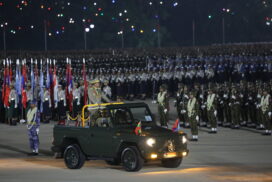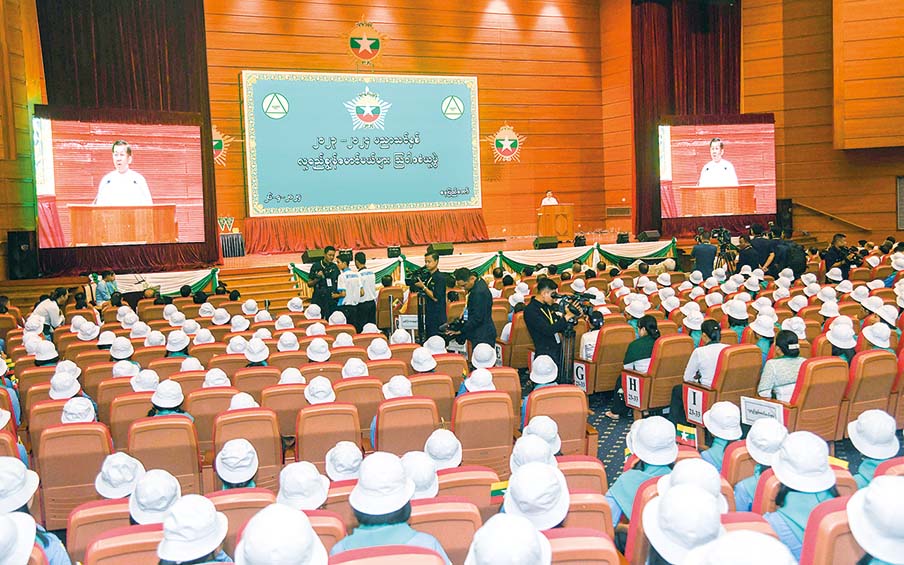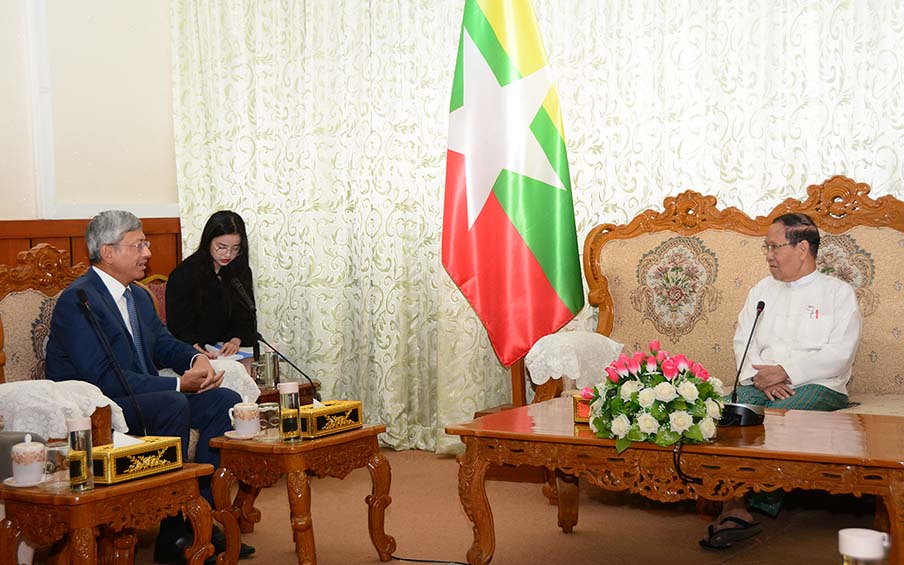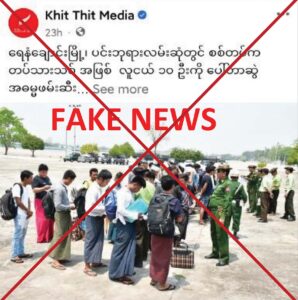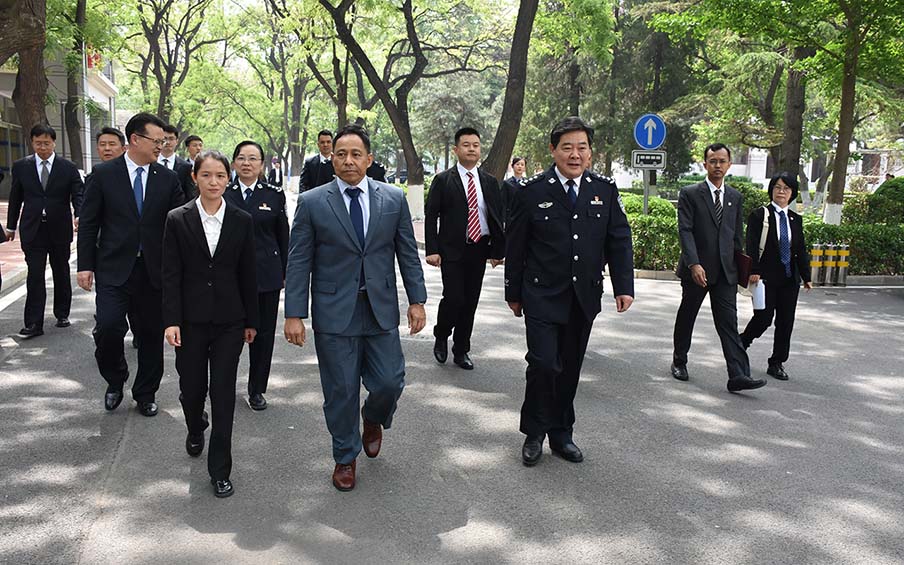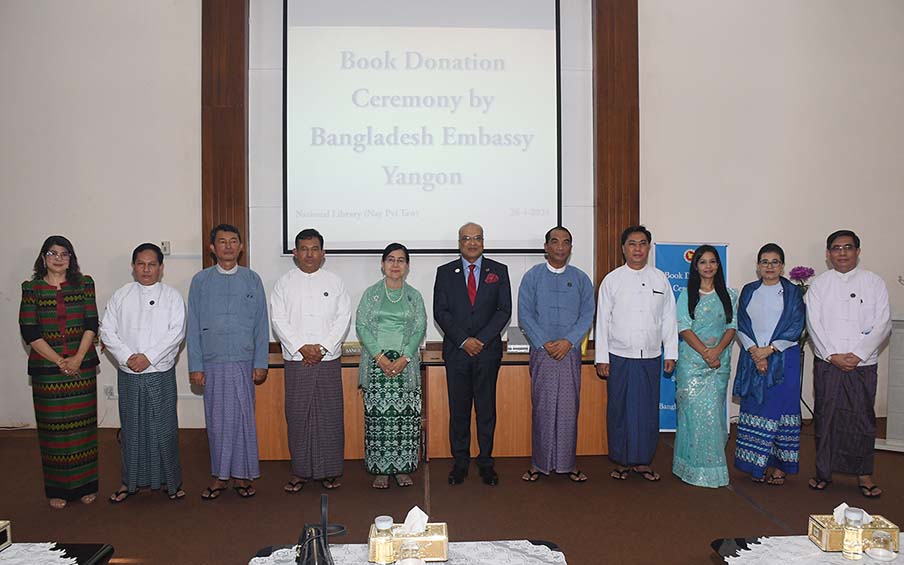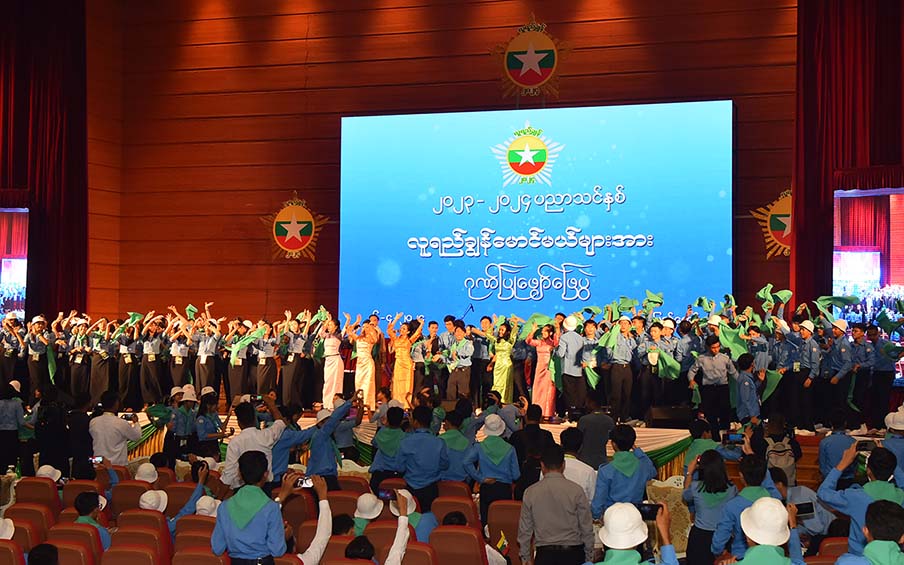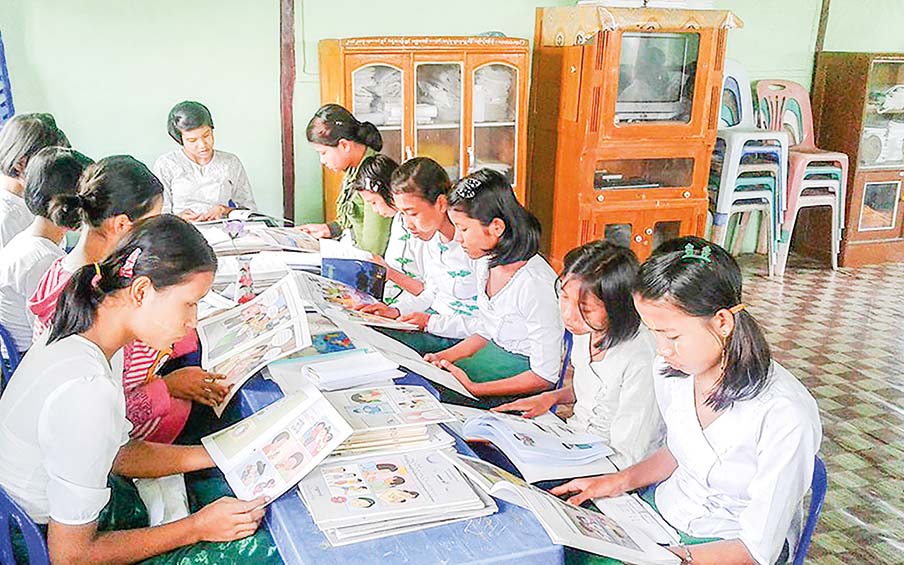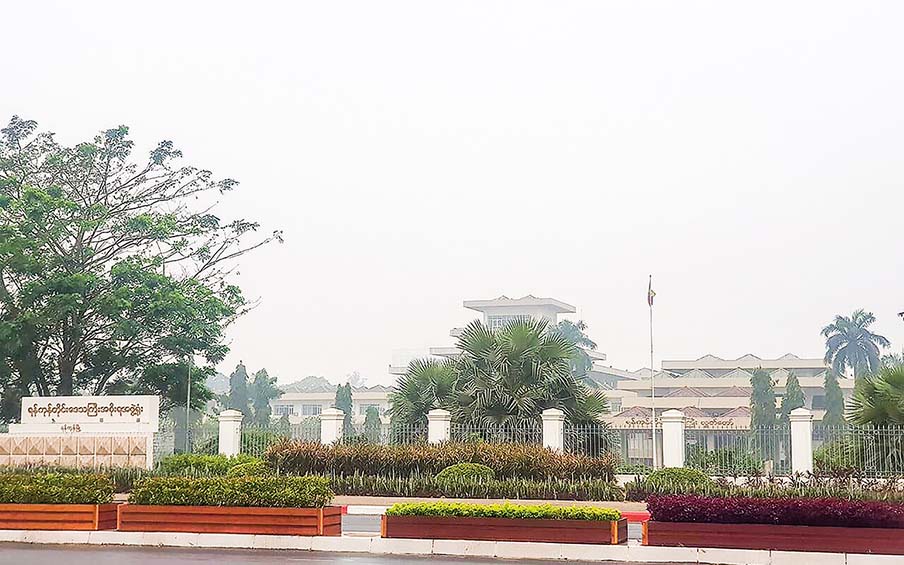Madam President, Members of the Court,
1. I return to my line of argument relating to the third preliminary objection. I listened carefully to my opponent. But I must confess that I am not appeased by his interpretation of Article VIII.
Effectiveness and questions of interpretation relating to the reservation
2. Let’s face it. I will start by looking at our question under Article VIII; then I will take it up again from the angle of reservation. The two lenses are not identical. The universe which opens in front of us differs according to the chosen reference point.
3. If Article VIII does not concern referral to United Nations bodies, what is the meaning of Myanmar’s reservation? Let’s face it bluntly: the reserve falls into legal nothingness. Burma would have made a reservation that has no legal effect. Isn’t this an absurd and unreasonable result? A State takes care to attach a reservation to a provision in an important treaty. It is certainly intended to achieve the legal effect. But he is told that his act was gratuitous, insane, Kafkaesque. I can’t resolve it.
4. Let us assume that Article VIII concerns only the political organs of the World Organization. Assuming that he affects their referral, we are still faced with the same legal situation. Political bodies can be seized on the basis of the relevant provisions of the Charter, such as Articles 35 and 39. It would be presumptuous to claim that the reservation to Article VIII of the 1948 Convention could affect the competence of these bodies in under the Charter. If necessary, it would still be possible to affirm that their referral for questions of interpretation or application of the Convention would be rendered impossible. But such a limitation would have no tangible weight. The referral could relate to genocide as a threat to peace or as a violation of human rights. The reservation would not apply there. Therefore, it has no useful effect in the field of political bodies. This is all the more the case if Article VIII does not concern seisin. In this eventuality, the reserve floats entirely in legal weightlessness.
5. Let us now assume that Article VIII also concerns the Court. While it does not govern the seisin of this Court but leaves this aspect to Article IX, Myanmar’s reservation once again has no effect whatsoever. The Court is seized on the basis of Article IX and has jurisdiction.
6. I draw the sum of what I have just exposed. First hypothesis: Article VIII does not cover the referral of the organs concerned but merely recalls that they can be seized on the basis of other texts. Why make a reservation to such a provision? It is of no use. It is therefore impossible that Burma did understand it that way when it formulated it. I recall that the intention and the aim sought by the reserving State are decisive in the interpretation of reservations.
7. Second hypothesis: Article VIII only concerns the seisin of political bodies. However, this seisin cannot be prevented by the reservation. The latter does not extend to the relevant provisions of the Charter. Once again the reservation has no effect.
8. Third hypothesis: Article VIII concerns both the seisin of political bodies and the judiciary, but referral to the Court is regulated solely by Article IX. The reservation on Article VIII has for the umpteenth time no consistency, no effect, no reality. Political bodies can be seized on the basis of the provisions of the Charter. The Court can be seized on the basis of Article IX.
9. Therefore, I dare to formulate a fourth hypothesis: Article VIII concerns the seisin of the Court. The reserve is then reborn from these ashes. It has the effect of not allowing referral to the Court. This is the only way to give a useful effect to this pool. This is the only way to respect the will of the reserving State.
10. Let us now reverse the perspective and place ourselves in the optical field of Burma. It is this shift in relativity that I announced to you at the beginning of my speech. If that State had had doubts about the fact that its reservation could prevent the seisin of the Court, can one imagine that it would not have inserted a reservation in Article IX, in the same way as a whole series of other states? However, if Burma believed that its reservation to Article VIII prevented referral to any United Nations body, it is easy to understand its omission with regard to Article IX. Otherwise, we do not understand it. We hesitate, we slip more or less discreetly: why didn’t you do that? with the fleeting undertone of a reproach. The simpler and more coherent explanation is to realize that in their view a reservation to Article IX was no longer necessary. Burma thought it had already ruled out any seisin of a United Nations body that could interfere in its internal affairs.
11. There is a very important aspect to which I want to draw your attention. The essential effort in our species is to make sense of the Burmese reservation. What can she mean? How should it be interpreted? Optics is decidedly subjective. It is the intent and purpose that Burma had in mind that must be scrutinized to give reliable meaning to its reservation. If so, the objective interpretation of the relationship between Articles VIII and IX of the Genocide Convention is not decisive. Even if our opponents were right and Article VIII objectively did not concern the Court, the fact remains that we must focus on Burma’s representations to understand the meaning of its reservation. It is necessary to probe the way in which she understood these provisions as well as their mutual relation. In this regard, there is no room for doubt. If Burma had not conceived of Article VIII as relating to seisin, its reservation cannot be given any useful meaning.
12. I change the perspective again. Here is a State attaching a reservation to which it is committed to a provision that it considers important in a treaty of significant scope. Members of the Court, you are nationals of very different States. You are aware of the reservations that your States have deemed necessary to insert in such and such a treaty deemed to be important. You know how much they can hold on to it. And now our opponents are asking the Court to ignore such a reservation. That they enjoin him to act as if this reservation did not exist. What message would you give to States, which closely follow your case law? That the Court does not take their reservations seriously? That she allows herself to gloss over them as a negligible quantity? Those carefully formulated reservations can suddenly be thrown into the abyss of non-existence? We can all regret, from an ideal point of view, that reservations undermine the integrity of the texts. But it is not in our mission to ignore them because they do not suit us.
13. Finally, I draw the Court’s attention to a paradox in the adverse interpretation. If Article VIII indeed concerns referral to political bodies and the reservation had an effect in this respect, this would mean that referral to political bodies would be barred but not a referral to the Court, preserved by Article IX. Result: Myanmar would be protected against the seisin of bodies that usually only issue recommendations, but it would not be protected against a body that decides in a binding manner. Curious effect for a State seeking to protect itself from third-party interference. Minor interference would be hindered, major interference would be allowed. I find it hard to believe that such an effect is easily reconciled with the intention of the reserving State in the present case. Therefore, the interpretation that Article VIII covers the Court seems more consistent if one takes into account the purpose of the reservation.
14. I have just set out the main problem I have come up against: can we really, with the stroke of a pen, deny any useful effect to Burma’s reservation and transform it into a legal zombie, even more: annihilate it? Madam President, honourable Judges, I cannot speculate on your feelings. But I confess that I, for my part, have difficulty in concluding in this sense. Nothingness is an interesting concept in philosophy; I do not believe that it is so in the matter of reservations to treaties. We cannot adopt a solution that would amount to completely ignoring the reservation that Burma had attached to Article VIII. This reserve is there; you have to give it a meaning.
Answers to certain arguments of our opponents
15. I now turn to three arguments put forward by our opponents. I don’t have time to list them all. I do not think it is useful to keep you spellbound with detailed explanations, tedious in their technicality and useless in view of the information already amassed in our debates.
16. First argument: the distinction between injured and non-injured States would not fit with the texts. Our opponents point out that Article VIII would not support it. The same would apply to the preparatory work for this provision. I concur. As for me, I was referring not to Article VIII, but to the reservation. Does the text of the reservation justify such a distinction? At the risk of surprising you: my answer is negative. The reservation excludes any application of Article VIII from Burma’s scope of acceptance. It makes no distinction between injured and non-injured States. But then, where does this bipartition come from? It stems from a gracious gesture from Myanmar. The latter would be justified in counting on the exclusion of any referral based on the implacable text of its reservation. But he didn’t want to go that far.
See Page-6
From Page-5
He preferred to limit the projection of his reservation only to referrals from non-injured States. No doubt it would have been easier if he hadn’t. But can we blame Myanmar for wanting to soften the rigour of its reservation? If our opponents prefer to stick to the sole text of this reservation, the legal response, from the perspective of Burmese intentions, is simple: any seisin whatsoever is excluded, whether it comes from an injured State or from a non-injured State. I leave it at that because this distinction does not seem to me to be important for resolving our case. The essential point is elsewhere. It concerns the object and purpose of the reservation: to exclude a seisin leading to interference in internal affairs.1 Referral to the Court is clearly such “interference”. It is all the more so as it results in a binding decision.
17. If the reservation-related only to issues related to Article 2, § 7, of the Charter, it is difficult to understand the content of its text. Why then radically exclude the application of Article VIII and not limit oneself to reproducing the usual formulas on internal affairs?
18. Second argument: you have been told at length about the preparatory work of Articles VIII and IX. This is a series of convoluted facts in a long chain of positions that are sometimes changing and whose interpretation is not easy. They do not lend themselves to an oral presentation highlighting the most salient aspects. I, therefore, take the liberty of referring you in this respect to the written documents2. My objective was to draw your attention to the fact that the limitation of Article VIII to the only political organs, namely the General Assembly and the Security Council, was rejected in favour of a broader approach, encapsulated in the formula “organs United Nations”.
19. There is another reason why I have not insisted on the preparatory work. The Genocide Convention is a multilateral treaty. The interpretation of such treaties is primarily based on the text and other objective elements. The works only form a subsidiary element, with the mission of confirming or clarifying an interpretative result or invalidating such a result when it is absurd or unreasonable. Is it unreasonable here to suggest that the Court is a competent organ of the United Nations? The case law is established on this subsidiary role of the travaux. If so-called objective methods of interpretation prevail, they should be applied to all provisions. Arbitrary choices cannot be made, using them only for “civilizing” dispositions while excluding them for more technical dispositions. A convention is not a menu à la carte in which the interpreter behaves as he pleases.
20. There is one more reason for not having placed much emphasis on the preparatory work. They are secondary in interpreting the meaning of Burma’s reservation. Subjective representations count here. Therefore, the intention of Burma is capital.
21. I will however say a word about the travaux so that you do not think that I want to evade them because they would not bring enough grist to the mill. I mention two significant facts. Articles VIII and IX were negotiated together. They were even merged in a phase of the negotiations, before being separated again.3 Article VIII appeared as the general provision, the gateway, while Article IX specified the aspects of jurisdiction-specific to the Court. We do not note this tight separation between the political and judicial domains that our opponents exalt.
22. Moreover, in November 1948, at a very advanced stage of the negotiations, the text of Article X (now Article VIII) used the term “any competent organ of the United Nations”.4 Any competent body! Except for the Court?
23. The opposing party has analyzed the meaning of the terms ‘saisir’ and ‘recurrir’, emphasizing their inclusive nature. My opponent used the word ‘also’ to say that these terms are suitable for both judicial and political organs.5 This was to bolster its argument that Article VIII is about political bodies – because such bodies would not be excluded by the term ‘seize’. But she may not have realized that she admitted through her formula that those terms include the courts. The preparatory works contain a few scattered elements attesting to this inclusive meaning. See the position taken by Sir Hartley Shawcross on behalf of the United Kingdom. It is included in the bodies referred to in Article VIII the international criminal tribunal to be established to punish the crime of genocide.6
24. Third argument: our opponents thought it right to try to put me in difficulty by producing my own writings. It’s a risky bet because who better than the author knows what he said. A Commentary I contributed to has been quoted to my detriment. It relates to Article IX of the Convention. It thus affects the jurisdiction of the Court on the basis of the arbitration clause. I do not take back a word of what I wrote at the time. If there were no reservation applicable in the present case and if we were exclusively within the purified spheres of Article IX, the Court would have this extended jurisdiction which I mention in the commentary. However, I did not deal there with Article VIII and even less with the reservation of Burma. These questions were out of the scope.
25. The academics among you, ladies and gentlemen, understand me easily; I am sure the same is true of Judges deprived of the rather relative privilege of having been a teacher. The doctrinal writings start from a clean slate and have no fixed benchmarks. On the contrary, in litigation, you are immediately seized of particular or idiosyncratic circumstances. They impose the weight of their gravitation on you. I don’t see anything resembling a contradiction or an about-face here. The context and the underlying reasoning are not identical. All this is not decisive for our species. I didn’t even want to bring that up. I feared, however, that my silence might arouse the suspicion of embarrassment. I preferred to dissipate it.
Conclusion
26. What would I especially like you to keep in mind from my two pleadings? This: whatever the objectively correct interpretation of the relationship between Articles VIII and IX, can we in the circumstances of the case adopt an exegesis the result of which is to deprive the Burmese reservation of any useful effect? Can your Court afford to ignore entirely a reservation which a State took care to attach to a convention when it became a party to it? Such a proposal makes me uncomfortable. I am sure you will give it careful thought, and I am in no way afraid of the results to which the paths of your wisdom will bring you.
27. These thoughts bring my presentation to an end today. I thank the Court for paying attention to me. May I ask you, Madam President, to call the Agent of Myanmar to make its closing remarks?
Footnote: 1 Myanmar, Pyithu Hluttaw, Motion for the Union Government to ratify, with two reservations, the Convention on the Prevention and Punishment of the Crime of Genocide adopted by the General Assembly of the United Nations in 1948, 2 September 1955, Unofficial Translation, p. 2, POM, Annex 127
2 POM, para. 402-435, pp. 122-132.
3 POM, para. 428, pp. 130-131.
4 UNGA, Sixth Committee, Genocide – Draft Convention and Report of the Economic and Social Council, Text as adopted by the Sixth Committee for articles VII to XIII of the draft Convention (E/794), UN doc. A/C.6/269, 15 November 1948, draft article X (emphasis added), POM, Annex 54.
5 CR 2022/2, p.42, para.13 (Pasipanodya).
6 Abtahi et Webb, The Genocide Convention : The Travaux Préparatoires, Martinus Nijhoff, 2008, vol.1, pp. 403-404.


